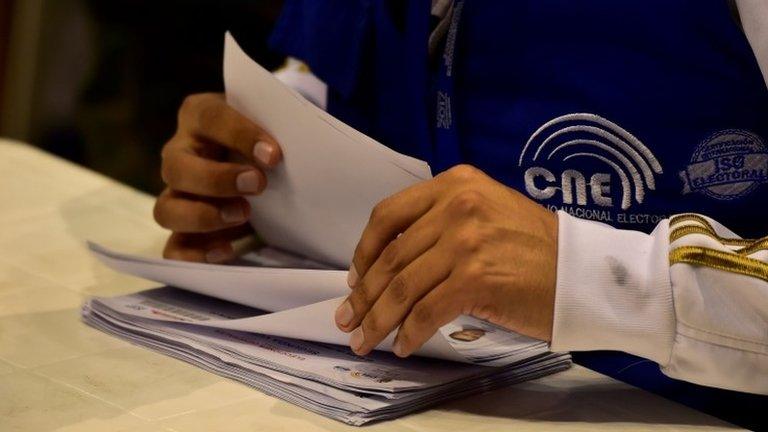Ecuador fines media for not publishing a story
- Published
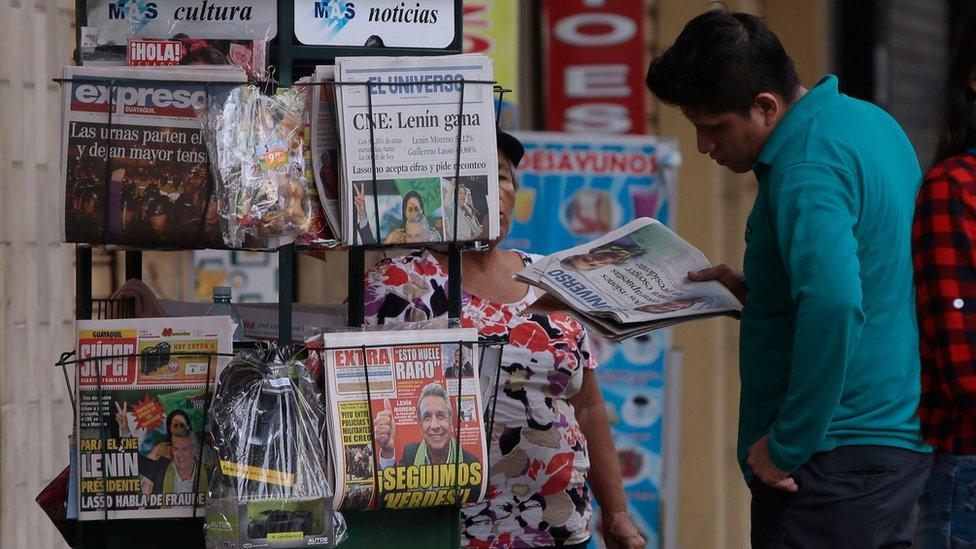
The ruling affects some of the country's biggest news outlets
Ecuador has fined seven media companies for not publishing a story that it deemed of public interest.
The state's media watchdog said the press had a duty to cover a story about the supposed offshore dealings of opposition politician and recent presidential candidate Guillermo Lasso.
The investigation was published in an Argentine newspaper in March.
The watchdog and the media companies have accused each other of censorship. Appeals are under way.
The ruling was made against newspapers El Comercio, La Hora, Expreso and El Universo, and television channels Televicentro, Teleamazonas and Ecuavisa.
The watchdog, known as Supercom, has fined the companies $3,750 (£3,000), the equivalent of 10 journalists' basic salaries, it said.
Supercom's superintendent Carlos Ochoa called the fines both a punishment and a motivation for improving journalistic practices.
Pedro Valverde, a lawyer for El Universo newspaper, told the BBC he will be "exhausting all administrative and judicial options to annul this absurd sanction".
The report, "Lasso: the offshore tycoon", was first published by Argentina's left-wing Pagina 12 newspaper, and was picked up by various other Ecuadorean news outlets ahead of the country's election on 2 April.
Local free speech organisation Fundamedios said the government should not be fining the media.
"It is an act of censorship designed to give the government the role of editor of all media, deciding what to publish or not," said director Cesar Ricaurte.
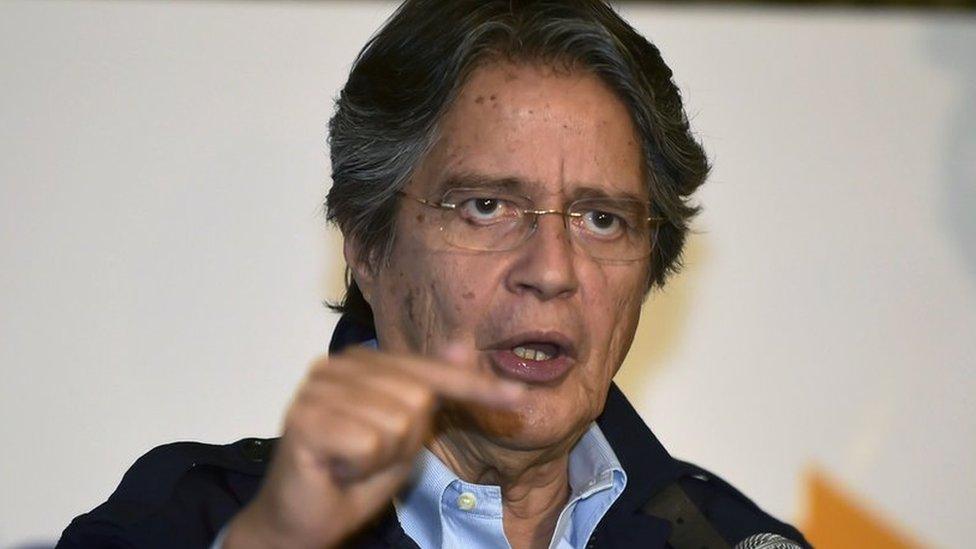
The investigation looked into the alleged offshore banking practices of presidential candidate Guillermo Lasso
Supercom acts under the controversial communications law,.
Introduced by President Rafael Correa in 2013, the law gives officials the power to sanction media outlets.
The recent complaint against the media was filed by an organisation called the Citizen's Observatory for Quality Communications, on 27 March, after President Correa raised a complaint on his television show.
The organisation said the various media organisations - some of the country's biggest - had failed to publish or investigate the offshore banking claims, which "affected the voting rights of Ecuadoreans, since the possible crimes involved someone who aspired to be president".
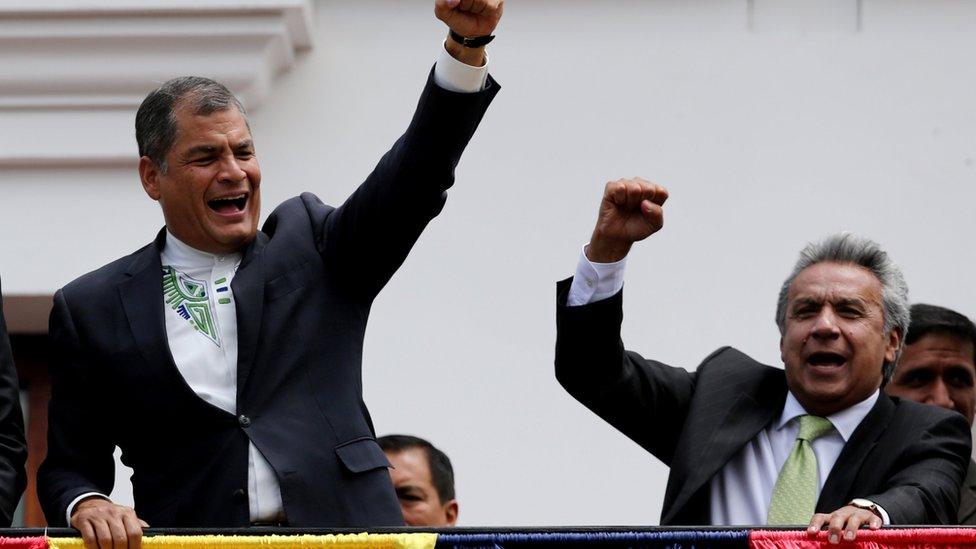
Outgoing Ecuadorean President Rafael Correa with his successor, Lenin Moreno
However, some of the affected media have come forward to say they were bound by contradictory legislation.
Mr Valverde referred to the Code of Democracy, which does not allow the media to publish works that might be seen as actively working for or against a candidate during an election period.
Representatives of El Comercio newspaper also said the communications law has another clause - article 22 - which states that journalism must be verified, and it could not vouch for the Argentine investigation.
Will the law last?
Mr Lasso planned to revoke the communications law, had he won the election.
The former banker narrowly lost to left-wing candidate Lenin Moreno.
President-elect Moreno has also expressed reservations about the law, including after the seven fines were announced.
He said he would like to speak to the press directly about it, according to media reports.
President Correa has praised his law repeatedly, including in reference to this latest incident.
- Published2 February 2012
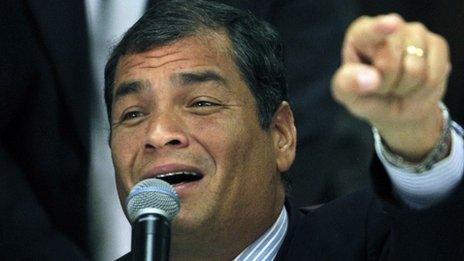
- Published19 April 2017
